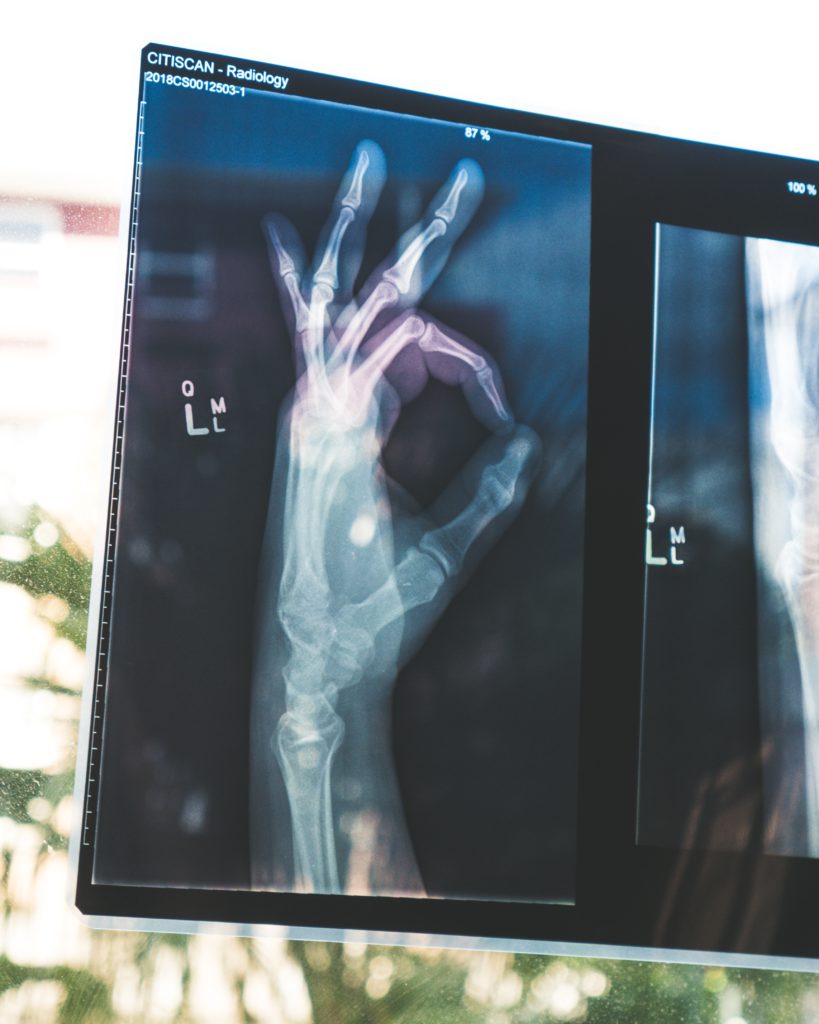Throughout this article, you will learn about berberine, a natural health supplement with various benefits. It is derived from plants such as barberry, tree turmeric, and goldthread. Berberine has been used in traditional Chinese and Ayurvedic medicine for centuries. Some of its properties include anti-inflammatory, antioxidant, and antimicrobial effects. Its most well-known use is in managing metabolic health, specifically blood sugar and cholesterol levels. However, it’s important to be aware of potential interactions with other medications, so we will discuss which medications should not be taken with berberine.
Potential Medication Interactions with Berberine
When considering the use of berberine as a natural health supplement, it’s crucial to be aware of potential medication interactions. Berberine has been found to interact with certain medications, which can affect their effectiveness or potentially lead to harmful side effects. Before adding berberine to your daily regimen, it’s important to understand which medications should not be taken with it.
Interactions with Anti-Diabetic Medications
If you’re taking anti-diabetic medications to manage your blood sugar levels, it’s essential to exercise caution when considering berberine supplementation. Berberine can enhance the effects of these medications, resulting in lower blood sugar levels. It’s important to monitor your blood sugar levels closely and consult with your healthcare professional before combining berberine with anti-diabetic medications.
Sulfonylureas
Sulfonylureas are a class of medications commonly used to treat type 2 diabetes. Examples of sulfonylureas include glipizide, glyburide, and glimepiride. Berberine has been found to enhance the effects of sulfonylureas, potentially leading to excessively low blood sugar levels. It’s crucial to monitor your blood sugar levels closely and work with your healthcare professional to adjust your medication dosage if you decide to take berberine alongside sulfonylureas.
Biguanides
Taking berberine alongside biguanides, such as metformin, can also enhance the effects of these medications. As with sulfonylureas, combining berberine with biguanides can result in lower blood sugar levels. Regular monitoring of blood sugar levels and close communication with your healthcare professional are essential if you’re considering taking berberine alongside biguanides.
Thiazolidinediones
Thiazolidinediones, also known as glitazones, are another class of medications used to treat type 2 diabetes. Examples include rosiglitazone and pioglitazone. Berberine may enhance the effects of thiazolidinediones, leading to a higher risk of low blood sugar levels. It’s crucial to monitor your blood sugar levels closely and work with your healthcare professional to adjust your medication dosage if you decide to take berberine alongside thiazolidinediones.
Alpha-Glucosidase Inhibitors
Alpha-glucosidase inhibitors, such as acarbose and miglitol, are medications that help slow down the digestion of carbohydrates in the intestines. When taking berberine alongside alpha-glucosidase inhibitors, the effects of these medications may be enhanced, potentially resulting in lower blood sugar levels. Regular monitoring of blood sugar levels and close communication with your healthcare professional are crucial if you’re considering berberine supplementation alongside alpha-glucosidase inhibitors.
Dipeptidyl Peptidase-4 Inhibitors
Dipeptidyl peptidase-4 (DPP-4) inhibitors, including sitagliptin and saxagliptin, are medications used to manage blood sugar levels in individuals with type 2 diabetes. Research suggests that berberine may enhance the effects of DPP-4 inhibitors, potentially leading to lower blood sugar levels. Close monitoring of blood sugar levels and regular communication with your healthcare professional are vital if you’re considering combining berberine with DPP-4 inhibitors.
Sodium-Glucose Cotransporter-2 Inhibitors
Sodium-glucose cotransporter-2 (SGLT2) inhibitors, such as canagliflozin and dapagliflozin, are medications used to lower blood sugar levels in individuals with type 2 diabetes. When taken alongside berberine, the effects of SGLT2 inhibitors may be enhanced, leading to a potential increase in the risk of low blood sugar levels. It’s crucial to monitor your blood sugar levels regularly and work closely with your healthcare professional if you decide to combine berberine with SGLT2 inhibitors.
Interactions with Anti-Hypertensive Medications
If you’re currently taking medications to manage your blood pressure, it’s important to be cautious when considering berberine supplementation. Berberine has been found to have potential interactions with certain anti-hypertensive medications, which can affect blood pressure control.
Angiotensin-Converting Enzyme (ACE) Inhibitors
ACE inhibitors, such as lisinopril and enalapril, are commonly used to treat high blood pressure. Research suggests that berberine may enhance the effects of ACE inhibitors, potentially resulting in a greater reduction in blood pressure. Regular monitoring of blood pressure levels and communication with your healthcare professional are essential if you’re considering combining berberine with ACE inhibitors.
Angiotensin II Receptor Blockers
Angiotensin II receptor blockers (ARBs), including losartan and valsartan, are medications used to treat high blood pressure. When taken alongside berberine, there is a potential for enhanced blood pressure-lowering effects. Regular blood pressure monitoring and close communication with your healthcare professional are crucial if you’re considering berberine supplementation alongside ARBs.
Beta-Blockers
Beta-blockers, such as metoprolol and atenolol, are medications that help reduce heart rate and lower blood pressure. Berberine may interact with beta-blockers, potentially resulting in a more significant reduction in heart rate and blood pressure. Regular monitoring of heart rate and blood pressure levels and communication with your healthcare professional are important if you decide to combine berberine with beta-blockers.
Calcium Channel Blockers
Calcium channel blockers, including amlodipine and diltiazem, are medications used to relax blood vessels and lower blood pressure. When taken alongside berberine, there may be a potential for enhanced blood pressure-lowering effects. Regular monitoring of blood pressure levels and close communication with your healthcare professional are essential if you’re considering berberine supplementation alongside calcium channel blockers.

Interactions with Anti-Coagulant Medications
Berberine may also interact with medications used for their blood-thinning properties, known as anti-coagulants. It’s important to exercise caution when combining berberine with these medications to prevent any adverse effects.
Warfarin
Warfarin is an oral anticoagulant medication commonly used to prevent blood clots. Berberine has the potential to increase the effects of warfarin, leading to an increased risk of bleeding. Close monitoring of blood clotting time and frequent communication with your healthcare professional are essential if you’re considering combining berberine with warfarin.
Heparin
Heparin is another anticoagulant medication used to prevent blood clots. When taken alongside berberine, there may be an increased risk of bleeding. Regular monitoring of blood clotting time and close communication with your healthcare professional are crucial if you’re considering berberine supplementation alongside heparin.
Direct Oral Anticoagulants
Direct oral anticoagulants (DOACs), such as dabigatran and rivaroxaban, are newer medications used to prevent blood clots. Berberine has the potential to enhance the effects of DOACs, leading to an increased risk of bleeding. Regular monitoring of blood clotting time and regular communication with your healthcare professional are important if you’re considering combining berberine with DOACs.
Interactions with Statins
Statins are medications commonly used to lower cholesterol levels and reduce the risk of cardiovascular events. When considering berberine supplementation, it’s important to be cautious if you’re already taking statins to manage your cholesterol levels.
Atorvastatin
Atorvastatin is a commonly prescribed statin medication. Berberine has been found to interact with atorvastatin, potentially increasing the risk of statin-related side effects, such as muscle pain or weakness. It’s important to monitor your symptoms closely and communicate with your healthcare professional if you decide to combine berberine with atorvastatin.
Simvastatin
Simvastatin is another widely used statin medication. Like atorvastatin, berberine may interact with simvastatin, increasing the risk of statin-related side effects. Regular symptom monitoring and close communication with your healthcare professional are crucial if you’re considering berberine supplementation alongside simvastatin.
Rosuvastatin
Rosuvastatin is a potent statin medication used to lower cholesterol levels. Berberine may interact with rosuvastatin, potentially leading to an increased risk of statin-related side effects. Close monitoring of symptoms and regular communication with your healthcare professional are important if you’re considering combining berberine with rosuvastatin.

Interactions with Immunosuppressants
If you’re taking immunosuppressant medications to manage conditions such as autoimmune diseases or following an organ transplant, it’s essential to be aware of potential interactions between berberine and these medications.
Cyclosporine
Cyclosporine is an immunosuppressant medication commonly used to prevent organ rejection following transplantation and manage various autoimmune diseases. Berberine may interact with cyclosporine, potentially affecting the blood levels of the medication. Regular monitoring of cyclosporine levels and close communication with your healthcare professional are crucial if you’re considering combining berberine with cyclosporine.
Tacrolimus
Tacrolimus is another immunosuppressant medication used post-transplantation and for autoimmune diseases. Berberine has the potential to interact with tacrolimus, potentially affecting the blood levels of the medication. Close monitoring of tacrolimus levels and regular communication with your healthcare professional are important if you’re considering berberine supplementation alongside tacrolimus.
Sirolimus
Sirolimus is an immunosuppressant medication often used following organ transplantation. Berberine may interact with sirolimus, potentially affecting the blood levels of the medication. Regular monitoring of sirolimus levels and close communication with your healthcare professional are crucial if you’re considering combining berberine with sirolimus.
Other Medications to Be Cautious with Berberine
Aside from the specific medication classes mentioned above, there are a few other medications to be cautious about when considering berberine supplementation.
Glyburide
Glyburide is an oral anti-diabetic medication commonly used to treat type 2 diabetes. Berberine can enhance the effects of glyburide, potentially leading to lower blood sugar levels. Close monitoring of blood sugar levels and regular communication with your healthcare professional are important if you’re considering berberine supplementation alongside glyburide.
Metformin
Metformin is a widely prescribed medication for type 2 diabetes. Berberine can enhance the effects of metformin, potentially leading to lower blood sugar levels. Regular monitoring of blood sugar levels and close communication with your healthcare professional are crucial if you’re considering combining berberine with metformin.
Amlodipine
Amlodipine is a medication used to treat high blood pressure and certain heart conditions. Berberine may interact with amlodipine, potentially resulting in a more significant reduction in blood pressure. Regular monitoring of blood pressure levels and communication with your healthcare professional are important if you decide to combine berberine with amlodipine.

Consulting a Healthcare Professional
Given the potential interactions between berberine and various medications, it’s crucial to consult a healthcare professional before adding berberine to your daily regimen. They can assess your individual situation, including your current medications, health conditions, and specific concerns.
Importance of Medical Guidance
Seeking medical guidance before starting any new medication or supplement is crucial, as healthcare professionals can provide personalized advice based on your unique health needs. This is especially important when considering berberine, as it can interact with a wide range of medications and potentially affect their effectiveness.
Assessing Potential Drug Interactions
Your healthcare professional can thoroughly evaluate your current medications and assess potential drug interactions with berberine. They can also provide guidance on adjusting dosages, monitoring for side effects, and ensuring optimal safety and effectiveness.
Individualized Recommendations
Every individual’s health needs and circumstances are unique. A healthcare professional can provide individualized recommendations based on your specific health conditions, medications, and overall health goals. They will consider potential interactions between berberine and your medications when determining the best course of action for you.
Conclusion
Berberine, a natural health supplement with various potential health benefits, may interact with certain medications. It’s important to exercise caution and consult with a healthcare professional before adding berberine to your daily regimen, especially if you’re taking other medications.
Understanding potential interactions between berberine and various medications, such as anti-diabetic, anti-hypertensive, anti-coagulant medications, as well as statins and immunosuppressants, is crucial for prioritizing your safety and health.
By seeking professional advice and working closely with your healthcare professional, you can ensure that any potential interactions are carefully monitored and managed, allowing you to safely incorporate berberine into your overall health and wellness routine. Remember, your healthcare professional can provide personalized recommendations and guidance based on your specific needs and circumstances.







